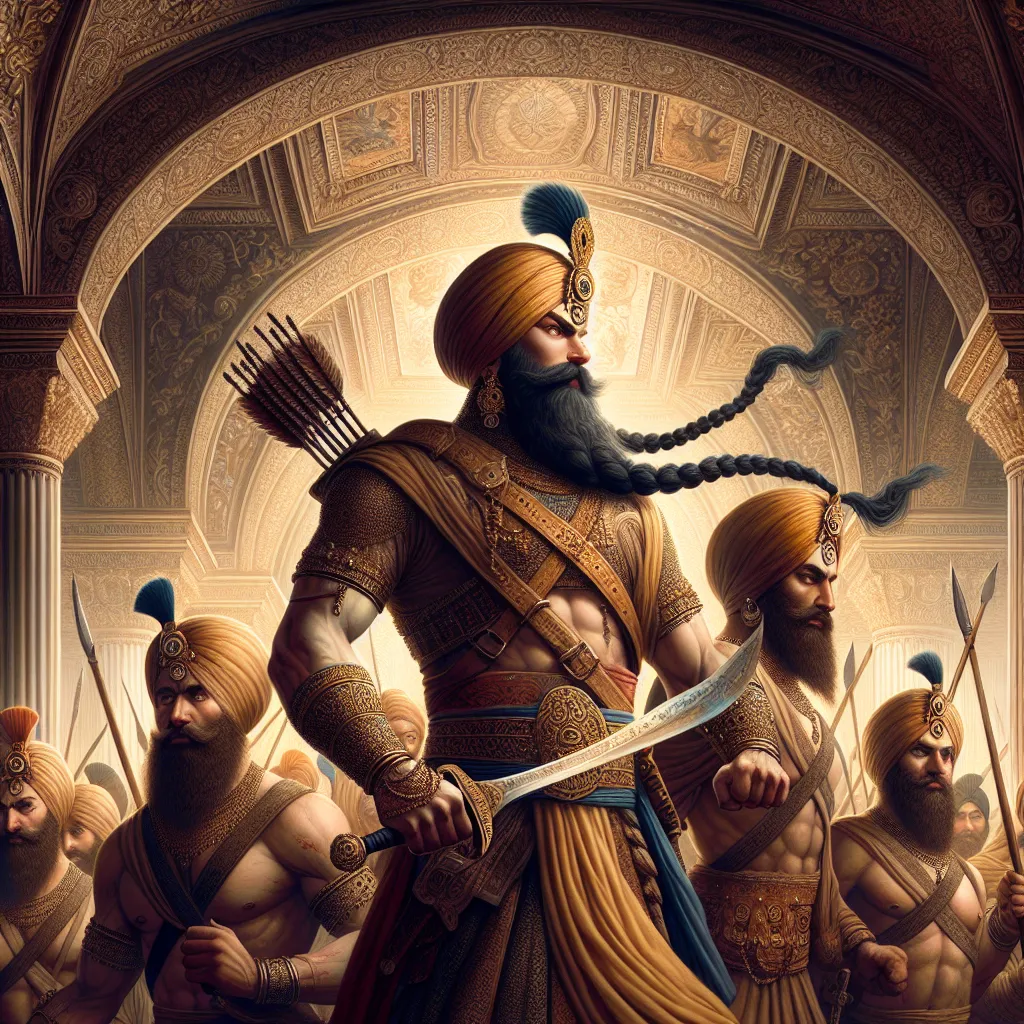
- Published on
- Authors

- Name
- You
Introduction
The Khalsa, a term that embodies the essence of purity and strength, is one of the most profound institutions in Sikhism. Established by Guru Gobind Singh, the tenth Sikh Guru, the Khalsa represents the synthesis of spiritual devotion and martial prowess. This article delves deep into the origins, principles, and lasting impact of the Khalsa, blending historical context with mystical insights and scientific principles to offer a holistic understanding.
The Birth of the Khalsa
Historical Context
In the late 17th century, the Indian subcontinent was fraught with political turmoil and religious persecution. The Mughal Empire, under Emperor Aurangzeb, waged a relentless campaign against non-Islamic faiths, including Sikhism. Against this backdrop of oppression, Guru Gobind Singh laid the foundation of the Khalsa in 1699 to uphold justice and protect the oppressed.
Table 1: Chronology of Key Events
| Year | Event |
|---|---|
| 1675 | Martyrdom of Guru Tegh Bahadur |
| 1699 | Establishment of the Khalsa |
| 1708 | Martyrdom of Guru Gobind Singh |
The Formation Ceremony
The formation of the Khalsa was marked by a dramatic ceremony on the festival of Vaisakhi. Guru Gobind Singh called upon Sikhs to assemble at Anandpur Sahib and initiated five volunteers, who came to be known as the Panj Pyare or the 'Five Beloved Ones'. These individuals were baptized using Amrit (sweetened water), sanctified by reciting sacred hymns, signifying their transformation into the Khalsa.
Principles of the Khalsa
The Five Ks (Panj Kakke)
The Khalsa adheres to the five Ks, each symbolizing a specific virtue:
- Kesh (Uncut Hair): Spirituality and acceptance of God's will
- Kangha (Comb): Cleanliness and order
- Kara (Steel Bracelet): Unity with the divine
- Kachera (Shorts): Chastity and self-control
- Kirpan (Sword): Duty to protect righteousness and justice
Diagram 1: The Five Ks
graph LR
A(Kesh) -- Spirituality --> B{Khalsa}
C(Kangha) -- Cleanliness --> B
D(Kara) -- Unity with the Divine --> B
E(Kachera) -- Chastity --> B
F(Kirpan) -- Duty and Justice --> B
Ethical Principles
The Khalsa upholds several ethical principles:
- Equality: Regardless of caste, creed, or gender
- Justice: Standing up against tyranny
- Humility and Service: Dedication to selfless service (Seva)
Significance in Sikh Tradition and History
Spiritual Relevance
The establishment of the Khalsa not only fortified the Sikh community against external threats but also imbued it with a robust spiritual framework. The Khalsa's commitment to both divine and temporal responsibilities is a unique characteristic that continues to inspire Sikhs worldwide.
Modern-Day Implications
Today, the Khalsa's influence extends beyond religious boundaries. Many principles resonate with modern scientific understanding:
- Mindfulness and Mental Clarity: Ethical conduct correlates with psychological well-being.
- Martial Training: Physical preparedness aligns with concepts of self-defense and community protection.
Table 2: Modern Interpretations of Khalsa Principles
| Principle | Modern Correlate |
|---|---|
| Spirituality | Mindfulness and Mental Health |
| Social Equality | Human Rights and Social Justice |
| Self-Discipline | Personal Development and Self-Control |
Conclusion
The Khalsa stands as a testament to the enduring spirit of Sikhism, merging the divine with the temporal. Its principles and ideals not only guided the past but continue to inspire future generations. This blend of mystical wisdom and practical ethics underscores the everlasting relevance of the Khalsa in a constantly evolving world.
This exploration combines historical richness with mystical depth, making the legacy of the Khalsa an inspiring and timeless study.
